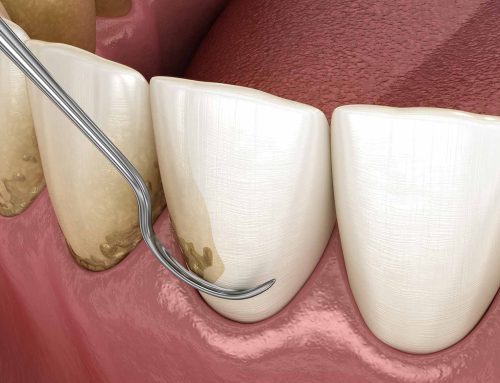The primary purpose of dental implants, like that of dentures and partial plates, is to replace missing teeth. By extension, they make it possible to chew food, help support the muscles of the jaw and can even improve the user’s speech. In addition to helping us to perform such mundane actions as eating and speaking, this procedure increases our self-esteem and encourages us to smile with confidence.
In light of such important benefits, it’s not surprising that you’d probably like to learn more about this procedure. Keep reading to find the answers to your questions, including those regarding pain, duration and especially pricing.
The dental implant procedure from start to finish
What are dental implants?
This is undoubtedly the first thing you’d like to know. Generally made of titanium, a dental implant is an artificial tooth root that’s solidly anchored in your jawbone. Following insertion, after several weeks of healing, the implant fuses with the bone, where it serves as an anchor point for an artificial tooth or crown, which replaces a missing natural tooth.
What are the possible contraindications?
While age isn’t an impediment when it comes to receiving implants, there are other factors you must consider. For example, it’s essential to treat any oral infections—especially gum disease—prior to initiating the procedure. Heart disease and certain medications can also represent major obstacles. You should never hesitate to discuss your state of health with your dentist in order to ensure your safety and the success of the procedure.
How long does the whole procedure take?
It depends on the quality of your jawbone, which unfortunately is something over which you have little or no control. If the quality is good, the dental professional will be able to place the implant and the temporary tooth in a single visit. You’ll then need to wait between two and five months for the bone to heal around the implant (a process known as “osseointegration”). Afterwards, the dentist will implant a full or partial prosthesis or a single crown, depending on your specific needs. In the case of an extended waiting period, you can always opt for a temporary tooth.
Will I have to go without teeth?
As mentioned above, you’ll avoid being toothless, since you’ll have recourse to temporary teeth.
Is the dental implant procedure painful?
This is certainly an important question when it comes to your well-being. The procedure itself is painless, as it’s performed under local anesthesia. In certain dental offices, you may even receive a light sedative to help you relax. After the operation, you may experience mild pain or discomfort, but nothing that analgesics can’t relieve.
Can I resume my normal activities after receiving implants?
The day after you get your implants, you can work, play sports and, of course, smile! The only activity that may require a bit of patience is eating. You should remain on a liquid diet for at least two weeks, followed by a gradual transition to soft foods, such as pasta, fish and eggs. After the second month, you’ll be able to chew easily again, so you can add more solid foods to your diet. Finally, after three months, you’ll be completely back to normal!
How do I care for my dental implants?
Nothing could be simpler: brushing, flossing and regular visits to your dentist, in other words, all the things you should be doing already! Of course, you can always ask your dentist for more details regarding how to care for your implants effectively.
How long do dental implants last?
The quality of the jawbone and the implant, your general state of health, the experience of the practitioner, your age and your oral hygiene can all affect the useful life of your implants. However, you’ll be happy to know that their average lifetime is between 7 and 10 years, with a success rate of approximately 95 percent and virtually no risk of rejection.
Given the rapidity of the operation and the fact that it provides a long-term solution, increased comfort and easy maintenance, you might think that implants offer nothing but advantages. However, this isn’t necessarily the case, as all of these positives come at a cost that you should consider prior to going ahead with the procedure.
The price of dental implants
To say that every case is unique would be the easy but oh-so-frustrating answer. The price of dental implants depends heavily on the number of teeth to replace, the available volume of bone, the quality of the implants and their components and, of course, the experience of the dentist! A reasonable price range would run from approximately $4,500 to replace a single tooth with a high-quality treatment to as much as $60,000 or more to replace all of the teeth. You’ve surely heard that you can get dental implants in Mexico or Cuba for a more affordable price. While there’s no denying that the fees are less expensive, bear in mind that there’s no guarantee of the absence of risks or the costs associated with them.
Luckily, tax credits, financing and dental insurance can offer significant support. In fact, depending on your income, you may qualify for tax credits for your medical expenses. With regard to insurance, it’s a little more complicated, as most policies don’t cover the implants, themselves. However, most dental insurance plans do allow and reimburse certain parts of the process. It’s up to you to submit a treatment plan to your insurer in order to find out what type of reimbursement you can expect. Finally, you can always apply for a bank loan at a reasonable interest rate to finance this type of care. Once again, your dentist can inform and advise you regarding the best path to take.
Now you understand that, when you’re missing several teeth, price is one of the biggest differences between dental implants and dentures. It’s also worth mentioning that the latter are a better option if you’ve suffered bone loss or if you’re unwilling to undergo a treatment as invasive as getting dental implants. On the other hand, dentures don’t last as long, they require very specific care and they can be uncomfortable for some users. Ultimately, both options are effective, and the one you choose will depend on your situation, both personal and financial!
As with many dental treatments, the first appointment with the dentist is crucial. Besides explaining the procedure in detail and offering you a precise estimate of the cost, your dentist should be able to put you at ease. Considering the time and money you’re investing in your well-being, you have every right to expect a dental office to give you personalized attention and follow-up.
That’s exactly what you’ll find at Clinique Dentaire Charles Trottier. Add them to your list of prospects, as there’s no doubt that they’ll offer you the attention, compassion and professionalism you deserve.





